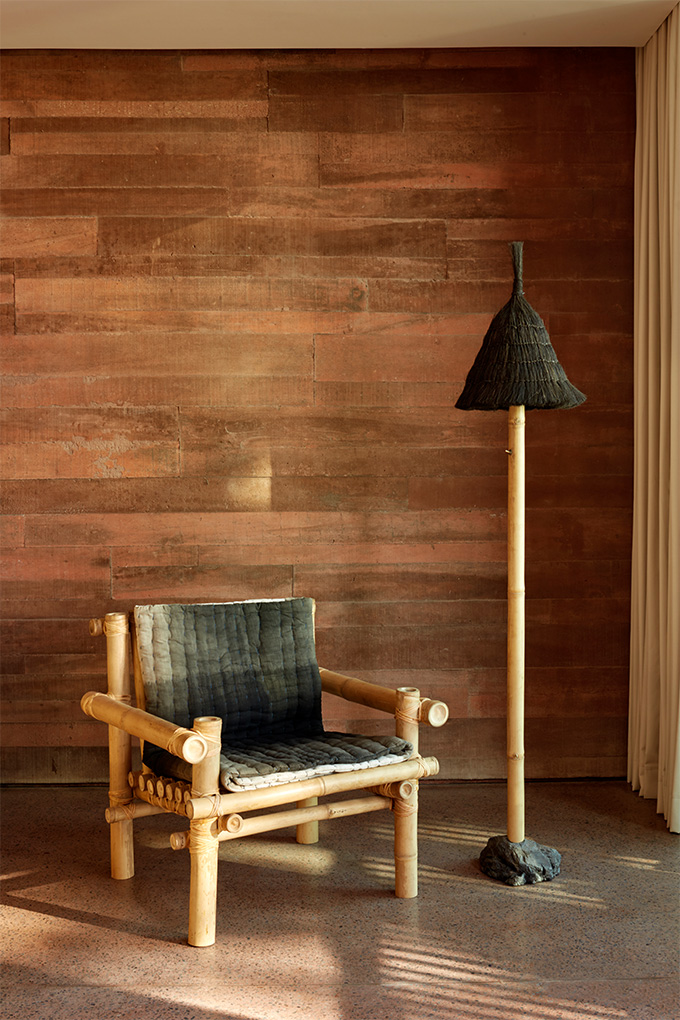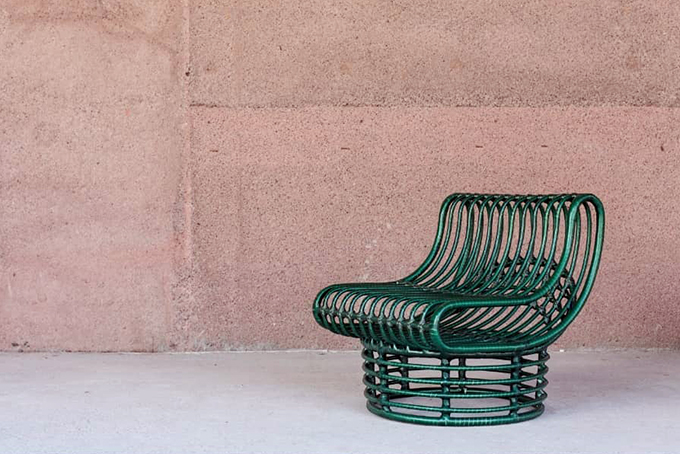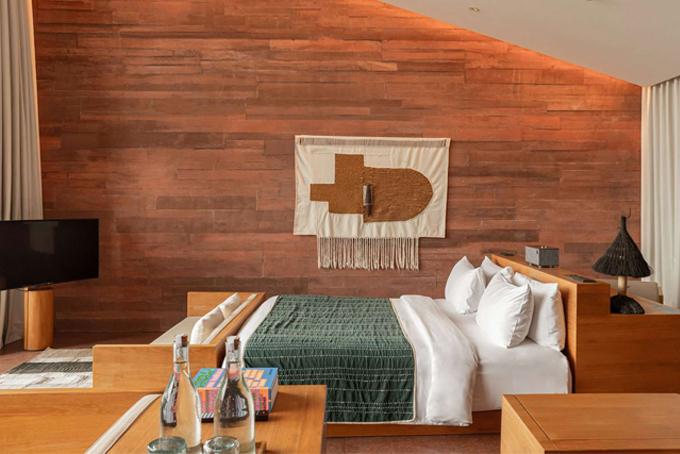“Fair warning, the smell is going to take a little getting used to,” says Maria Garcia del Cerro, Potato Head’s communication director. We are walking towards a set of doors through a waste lab, something you’d rarely expect to catch sight of when staying in a five-star hotel.
Potato Head is situated in Seminyak, Bali—an island known for a mounting garbage emergency. Due to poor waste management and uncontrolled tourism, the eight landfill disposal sites in Bali are overflowing with 3,800 tonnes of rubbish generated daily. The ocean surrounding the island, too, is swimming with garbage.
Garcia del Cerro flings the doors wide open. “This,” she exclaims, brandishing her arms, “is where we keep our organic waste.”
My nose instinctually twitches as the smell of fertiliser and rotting food infiltrates my senses, but she seems immune. It makes sense—she used to do these tours daily for over a year, but recently, the staff working in the waste lab have volunteered to take over the job. “The staff are incredibly proud to show off their handiwork. They can’t wait to show guests just how creative they can get with waste,” beams Garcia del Cerro.

Certified carbon neutral, Desa Potato Head treats its waste with consideration and care. Here, sustainability extends far beyond paper straws and a cloth tote bag in each guest room.
Waste is diligently collected from each venue on the property (made up of the world-famous Potato Head Beach Club, several stellar restaurants and bars, and a 226-room hotel) then painstakingly separated by hand. A staggering 97 percent of it is then re- or upcycled in some way—composted for Potato Head’s own garden, shipped off to a nearby farm, or turned into functional works of art that you’ll find everywhere, including in guest rooms.
Styrofoam, a substance that presently cannot be recycled, is transformed in the waste lab into hotel amenities, like soap dispensers, coasters and even chairs. The cooking oil used in various restaurants on site? Potato Head works with a local non-profit to turn into biofuel, which is then donated to Green School’s Bio Bus Programme to transport children to and from school.

Founder Ronald Akili has understandably dubbed Desa Potato Head a “creative village”. When you arrive on the property, striking design and an assortment of art installations instantly capture your attention—many of which have environmental messages at their core. The colosseum-inspired façade to Potato Head Beach Club is made with repurposed window shutters, while a hulking sculpture of a warrior is crafted from waste materials collected from the waterways around Bali.
Custom lobby seating designed by Faye Toogood’s Studio Toogood comes in the form of emerald green painted rattan canes shaped into contemporary forms. Lamps by British designer Max Lamb are crafted from offcuts from the local stone and bamboo industries and coiffed with palm fibre.

Needless to say, you won’t find a shred of single-use plastic anywhere. The absolute emphasis on this claim made me go into detective mode, keeping a keen eye out during my stay for blind spots the resort may have missed. The bin liners in my room, I thought, would surely be an exception to the plastic-free rule. Of course, I was wrong; they were made from a beguiling biodegradable material I had never heard of before.
In Potato Head Studios, the rooms themselves are constructed in a remarkably-modern modular format, with clearly defined blocks dedicated to sleeping, cleaning, eating and living. As you explore the wood-clad enclaves, nuggets of clever design jump out. A cubic coffee table, for example, morphs into an open bar when you slide open the top, complete with a built-in ice well, custom cocktail tools, local spirits and recipes by celebrated mixologist Dré Masso. On the terracotta-tinged walls, you’ll find ikat tapestries by Bali-based natural-dye studio Tarum.

In the oceanfront studio, a gorgeous wooden bathtub sits in the middle of the room, balperfect for soaking in after a night of cocktails at the beach club. It takes nearly an hour to fill, so it may be wise to request that the staff draw you a bath a little while before you retire to your room for the night. The accompanying shampoo, conditioner, body wash, bar soap and bath salts hail from Bali’s all-natural fragrance house, Sensatia Botanicals.
Pioneering sustainability efforts aside, where Desa Potato Head truly shines is in its food offerings. In several places, the hotel manages to meld regenerative philosophy with delicious food. Poolside restaurant Ijen is the first zero-waste restaurant in Asia, and a global leader in conscious sourcing. Meanwhile, Tanaman presents a masterclass in plant-based gastronomy, with a rolodex of imaginative dishes that are enjoyable whether or not you follow the diet. The sate jamur, in particular, is a moreish treat that honours the full potential of a king oyster mushroom.

And if it’s authentic Indonesian fare that you’re craving, head to Kaum, a favourite amongst locals for its extensive menu showcasing dishes from over 600 of the archipelago’s islands. The generational recipes featured on the menu are rarely shared outside of Indonesia, and are considered some of the best unknown dishes around the world. Another option, of course, is to ask one of the friendly staff members what the best babi guling spot is in the neighbourhood. They’ll happily let you in on the secret so you can indulge—you are in Bali, after all.
Book a stay at Desa Potato Head.





